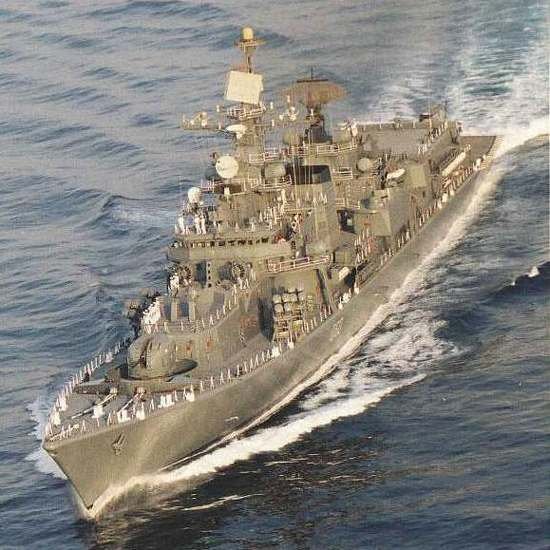India may disappoint Vietnam on S. China Sea
 0 Comment(s)
0 Comment(s) Print
Print E-mail
China.org.cn, August 5, 2011
E-mail
China.org.cn, August 5, 2011
Media reports said that Vietnam and India recently stepped up efforts to strengthen their naval ties. Vietnam will allow Indian naval warships to drop anchor at its Nha Trang port in southern Vietnam. In addition, India will offer naval facilities for training and capacity-building for Vietnamese forces.
 |
|
Indian missle destroyer |
When asked why Vietnam invited the Indian navy to establish a permanent military presence at Na Thrang port in Southern Vietnam, Ye Hailin, a researcher with the Chinese Academy of Social Sciences, said that it is difficult to say whether India will actually send ships to the port.
"I believe that it is another attempt taken by Vietnam to exert pressure on China," Ye said in an interview with China National Radio. "Vietnam hopes to establish military ties with many other countries so that it can counter China in the South China Sea with more confidence," Ye said.
India may not need to send ships to the port to serve its strategic interests, Ye said. India responded favorably to Vietnam's offer because it wants to make other Southeast Asian countries feel that India can play a role in the South China Sea. As a player, it doesn't need to take any specific responsibilities. The step could simply be a mechanism for India to project global sea power.
But India has also made clear that it is not realistic for it to act as a global naval power in its present financial position, Ye said. Projecting global sea power requires a global military presence, which India currently does not have, Ye said.
To India, the Indian Ocean and the waters from the Arabian Sea to Hormuz Strait are more important, Ye added. India is neither willing to nor has the ability to extend to the South China Sea and build a military presence there.
No matter how many countries Vietnam chooses to ally with, it cannot change a basic fact: its military force still lags far behind China's, Ye said.
If Vietnam chooses to resolve the South China Sea disputes by force, Ye continued, its allies would not be able to protect it. India likely formed its alliance on the understanding that China and Vietnam will not likely enter into large-scale armed conflict. But if Vietnam were to go too far and engage China militarily, India would likely be the first to leave, Ye said.
Vietnam's military alliance strategy is only an attempt to put pressure on China, Ye said.





